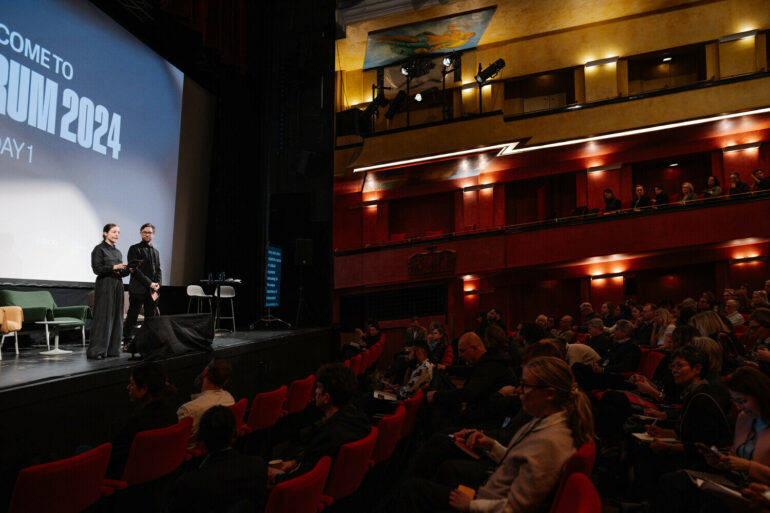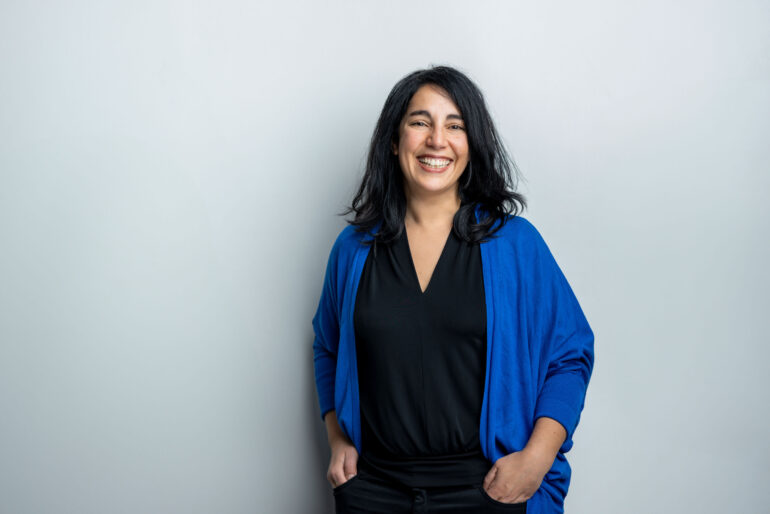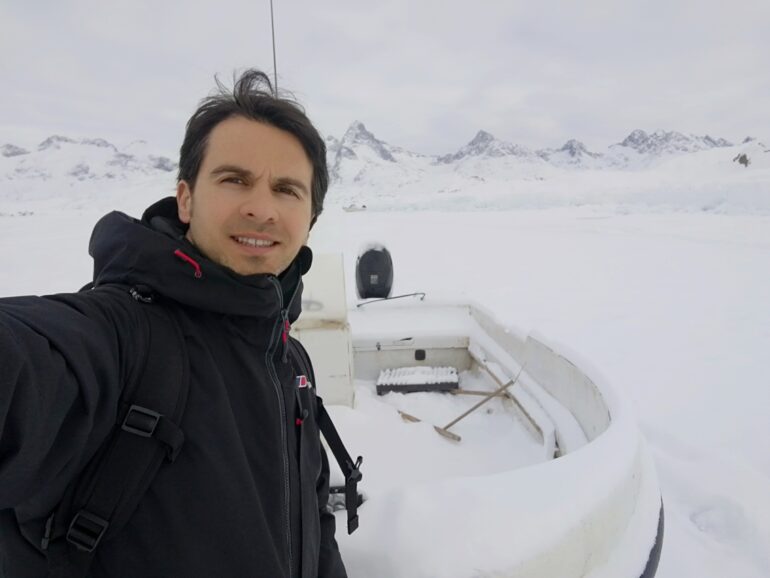Written by: Davide Abbatescianni
10.04.24
Amidst global uncertainty, the Danish gathering’s Forum remains a safe haven for Nordic and international professionals, who share their insights on the current documentary market.
After CPH:DOX wrapped up in late March, we gathered insights from both Nordic and international participants to sum up the current market trends such as budget challenges for creative docs, hybrid formats and the US presence on the market. They also had a closer look at the Nordic projects showcased in the Forum and WIP sidebars.
A first noticeable trend concerning this year’s Nordic projects is the teams’ keen interest in exploring social issues outside of their region, often related to troubled, faraway lands. Some relevant examples include Juan Alvaro Hein’s Oriente(Denmark/Argentina), zooming in on Danish-Argentinian gauchos; Mads Brügger’s Towards the Abyss (Denmark), a DR Congo-set doc thriller; Marina Vorobyeva’s My Estranged Sister (Min fremmede søster) (Denmark), which revolves around the helmer’s own sister living in Russia; Martin Tamm Andersen’s Haiti – Collapse (Denmark), an account of the Central American country’s free fall, and Yasaman Sharifmanesh’s I Am an Olive Tree (Sweden/Denmark), witnessing the fate of the Kurdish people of Afrin.
Meanwhile, three Nordic projects investigated “regional topics”, including Arthur Franck’s Cold War-set, “all-archival study” Showtime in Helsinki (Finland/Sweden), Lise Birk Pedersen’s exploration of “the cracks of Scandinavian democracies” The Call: A Political Odyssey (Denmark), and Maria Loohufvud and Love Martinsen’s colourful I Am Pippi (Sweden), a fresh look at the titular character created by Astrid Lindgren through the eyes of the actresses who portrayed her.
Predictably, sustainability and climate change were also among the hottest topics. The two Nordic projects tackling them were Lars Bergström and Mats Bigert’s Swedish doc The Broken Greenhouse (in the film, two artists aim to build “an emotional bridge between a thawing Arctic and an urban botanical garden”) and John Webster’s Burnt Earth(Maastopalo) (Finland). Interestingly, Webster’s doc boasts some thematic similarities with David Krøyer’s project While Our Sun Burns (Denmark/Greece), pitched at Thessaloniki last month. Krøyer’s projects follows a group of Greek volunteer firefighters who spend the summer trying to protect their village north of Athens, whereas Webster’s doc centres on a brigade of Finnish firefighters who travel to Portugal to learn from their elite colleagues already fighting on the frontlines of our climate emergency.
Speaking to NFTFV, CPH:DOX Industry Head Mara Gourd-Mercado is pleased with the results of this year’s market activities. She promises that her team will continue to focus on presenting a wide, diverse selection of projects, while “offering conferences and activities that speak to the industry’s trends and preoccupations”.
During the market days, many fruitful conversations took place, and a number of good deals were struck, with more being announced in the coming weeks. For the Nordic countries, it’s been “a good year”, Gourd-Mercado says, highlighting the triumph of Michelle and Uri Kranot’s Garden Alchemy (Denmark), the recipient of the first-ever Eurimages Innovation Lab Award.
Producer Mario Adamson, of Sweden’s Sisyfos Film, agrees with Gourd-Mercado. In detail, he praised the diversity of the showcased projects, boasting “a good mix of topical and timeless stories”.
“The Forum presentations I listened to were all very topic-focused. Many had a connection to science, and most of them felt very relevant, as they dealt with big questions of the present and future, such as social issues, colonialism, and sustainability. I also enjoyed the Friday conference, which offered some interesting talks and creative input about sustainable storytelling. More generally, the projects that interested us the most, combined different angles, and offer an international perspective while keeping a unique approach,” he adds.
The article continues after the picture.Meanwhile, Salma Abdalla, of Austria’s Autlook Filmsales, visited Copenhagen to show and promote some of the outfit’s new and recent titles, including Motherboard, Once Upon a Time in a Forest (Havumetsän lapset), Ibelin, and No Other Land.
“We felt that the festival is firmly established with Danish audiences. All screenings were well-attended with engaged viewers, and the CPH:DOX team ensured well-moderated Q&A sessions. It was also heartening to see industry professionals attending screenings, as sometimes they primarily focus on forum activities,” she tells us.
Zooming in on the Nordic doc scene, she explains: “Nordic filmmakers have consistently been on the forefront on the international stage. They have shown an openness to produce stories for global audiences, experiment with new formats, and tap into a rich pool of talent in editing, sound design, dramaturgy, and post-production, as well as various funding avenues. I dare say that the Nordic filmmaker community shows a very collaborative work ethic, crucial for crafting the most compelling stories.”
“However, we do observe that the so-called creative docs are facing greater challenges in securing full funding or reaching a wider audience. At the moment, we also see many more hybrid formats,” she says, adding that docs are now often crossing paths with art and animation.
Marion Guth, of Luxembourg’s a_BAHN, attended CPH:DOX for the first time this year. The company focuses on impact projects and innovation, producing “linear films and series, as well as immersive experiences”.
“I couldn’t help but notice and feel the care that organisers put in the selection of films at the market, in the festival, whether linear films or in the immersive section, the real attention for people and for diversity and climate action too,” she tells us.
Seasoned Java Films professional Kathryn Bonnici also attended the Danish gathering for the first time. The outfit presented Norwegian production Lie to Me at the festival, and “sold it three times when it was at rough cut stage”. Although the Java Films team doesn’t focus on “purely creative docs”, Bonnici says that the Forum projects were much more suitable than the ones presented at other festivals.
“Nordic creative documentaries have always been particularly strong, and they have a distinct style that I really like. But as they are often extensively subtitled, that poses a challenge for us.”
Talking about the current climate for sales, she says: “It’s becoming more and more challenging to make high-value sales, especially of films that don’t come with an A-list premiere or aren’t seen as being exclusive or immediately relevant to the audience. But on the positive side, there is a lot more potential to exploit back catalogue, particularly on VOD, so it’s not all bad.”
“I would highlight Haiti - Collapse as being exactly the kind of project we’re most interested in, as the team is really involved in the film. There is a strong current affairs angle, but also the potential to be much more than a TV investigation.”
“One trend I notice at these forums is for the budgets to be very high. I know Scandinavian budgets are typically higher than in other countries, but knowing what average license fees are for TV, I can see how it must be a challenge for the producers to raise those budgets. Aside from that, as fewer and fewer of our TV clients are going to MIPTV, I was able to meet with them here. That was very useful,” she sums up.
Finally, we spoke to Francesco Catarinolo, producer and director of Italy’s Studio Pandora, a firm specialised in animation and advertising, which has recently ventured into the production of shorts, series and narrative docs. Catarinolo praised CPH:DOX’s “totally informal atmosphere”, and described it as a place “where it’s still possible to discuss trends and exchange ideas” and “receiving feedback from commissioning editors” in a relaxed, fruitful fashion.
“I believe that creative documentary is in its golden age, because it continues to capture new audiences. It’s a genre that has a much lower production cost than live action, but it is able to make great numbers on both TV and platforms. In fact, in recent years we can see some interest even from major production companies that have not made documentaries in the past,” he says.
When asked to trace some noticeable market trends, he underscores a growing presence of projects by US producers and filmmakers. “I think this is happening owing to Netflix. More generally, it seems to me that the documentary trending topics are always the same: biographies, history, social, science, politics, and environment. And obviously there’s a strong focus on war stories owing to the recent events unfolding worldwide. Meanwhile, platforms are looking for more and more crime docs.”
The 2024 edition of CPH:DOX attracted some 2,000 doc industry professionals. The CPH:FORUM sidebar and its pitching, financing and co-production platform ran from 18-21 March.


